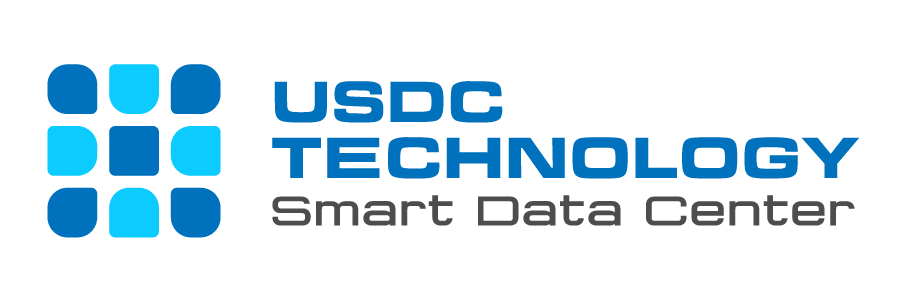In the digital age, the gaming industry is undergoing an unprecedented expansion, with millions of players worldwide. Yet, news of a poor gaming experience spreads rapidly across social media and gaming forums. Gamers are unforgiving when it comes to subpar experiences. Even minor performance issues, such as latency or server downtime, can drive players away to competitors. The gaming industry is highly competitive, with new titles and trends emerging constantly.
Failing to deliver top-notch performance can result in missed opportunities to capitalize on emerging trends or attract new players, strain budgets and hamper long-term growth prospects.

In this comprehensive article, we will explore how to select the right Data Center solutions such as In-house data center; hybrid cloud; colocation solution tailored to the gaming industry’s unique requirements while carefully considering several pivotal factors: Scalability, Data Security, Reliability, and Performance.
Table of Contents
I. The importance of Data Centers in Gaming Industry
II. Cost vs Performance consideration for Gaming Industry
III. Key decision factors of Data Center consideration
IV. Choosing the right Data Center solution
I.The Importance of Data Centers in Gaming Industry
On average, a player’s tolerance for latency in online games is less than 100 milliseconds (1). Any delay beyond this can negatively impact gameplay and user satisfaction. Numerous studies conducted found that a latency increase of just 20 milliseconds resulted in a 4% drop in player engagement and a 2% decline in in-game spending (2). This is not a mere inconvenience but a critical pain point for gamers.
In a recent survey of competitive gamers, 88% stated that lag and latency issues had caused them to lose games they believed they should have won (3). This frustration can lead to player churn, negatively impacting a game’s user base.

Now that, everyone understands the critical role of data centers and the meticulous selection process involved in a gaming industry where player satisfaction directly determines both revenue and triumph.
The challenge lies in striking the right balance between delivering a ‘PERFECT’ gaming experience, which embodies optimal performance, and ensuring a ‘PERFECT fit’ for your organization’s resources, meaning effective cost control. Keep rolling!
II. Cost vs Performance Consideration for Gaming Industry
The delicate balance between optimizing performance and controlling costs is paramount in the decision-making process. See how we lay out the three primary Data Center solutions, how each one excels in different ways, examining their performance and cost implications with real-world examples:
1. In-House Data Center

Pros: This option provides the highest level of control over infrastructure in order to deliver excellent performance, high level of data security, ultra-low latency, average round-trip latency measured in microseconds (μs).
Major gaming studios like Blizzard Entertainment have invested heavily in In-House Data Centers to support their massively multiplayer online games (MMOs) like World of Warcraft, providing seamless gaming experiences to millions of players. Another case by Epic Games, the creator of Fortnite, relies on In-House Data Centers to safeguard player data and prevent security breaches.
In gaming, uptime is paramount. A reliable In-House Data Center can minimize downtime and ensure uninterrupted gameplay just like Riot Games, the developer of League of Legends, maintains In-House Data Centers to guarantee the reliability of their online services.
Cons: However, it can entail substantial upfront capital expenditures and ongoing operational costs. For instance, setting up and maintaining a high-performance In-House Data Center may require an initial investment of several million dollars.
Besides, Scaling In-House Data Centers to accommodate sudden surges in player traffic can be challenging and expensive.
If those of performance; data security; ultra-low latency are prioritized over scalability and cost, then In-House data center might be your aspired consideration.
2. Hybrid Cloud Data Center

Pros: Hybrid solutions offer a flexible approach by integrating on-premises infrastructure with cloud resources, instantly scale resources up or down, making them ideal for accommodating unpredictable player demand. This approach can result in significant cost savings compared to In-House Data Centers, with an average cost reduction of 30% to 40%, as reported by industry experts (4).
Numerous success cases such as Electronic Arts (EA) leveraging hybrid cloud solutions to optimize costs while delivering high-quality gaming experiences across their portfolio or Ubisoft utilizing hybrid cloud resources to handle player traffic fluctuations during game launches and seasonal events.
Cons:While cloud providers offer strong performance, some resource-intensive gaming tasks may benefit from the customization of In-House Data Centers, and misconfigurations can lead to data breaches, emphasizing the importance of meticulous security management.
If cost efficiency, scalability, and data security take precedence over performance, then the Hybrid cloud could be a viable option to consider.
3. Colocation Solution

Pros: Colocation allows gaming companies to rent space and infrastructure from a third-party provider. It offers cost savings, as organizations share the operational costs with other tenants, with potential savings of up to 20% compared to in-house options (5), freeing up resources for game development
Many colocation providers offer flexible solutions, allowing gaming companies to quickly adapt to fluctuating player demand, facilities typically feature robust physical security measures, ensuring data security for gaming companies. Take the case of Square Enix – the developer of Final Fantasy, utilizes colocation to safeguard player data and game assets.
Cons: Yet, in terms of performance – it may not be as customizable as In-House Data Centers for highly specialized gaming tasks, although it is typically sufficient for most gaming operations. As a the matter of fact, Reliability can vary depending on the colocation provider’s infrastructure and service level agreements, making careful provider selection crucial. While physical security is strong, organizations must manage data security within the colocation space, requiring effective security policies and practices.
If you place a higher priority on cost efficiency, scalability, and data security over performance and reliability, then a Colocation solution could be your preferred option
III. Key Decision Factors of Data Center Consideration
Once again, so as to make informed decisions, C-suite must carefully consider several pivotal factors:
- Scalability: Scalability is crucial in the gaming industry, where sudden spikes in player activity are common. An analysis of traffic patterns in popular games revealed that player counts can surge by over 300% during peak hours (6).
- Data Security: Security breaches can be catastrophic for both players and gaming companies. The average cost of a data breach in the gaming industry is estimated to be around $5.27 million (7)
- Reliability: Player trust and satisfaction hinge on uninterrupted gameplay. A single hour of downtime during peak times can result in a loss of over $1 million in revenue (8)
- Performance: A mere 100-millisecond delay in response time can lead to a 1% drop in revenue for online retailers. In gaming, performance is equally critical, impacting player engagement and revenue.
IV. Choosing the Right Data Center Solution
Selecting the optimal Data Center solution is a critical decision that requires a methodical and strategic approach, including
- Identify Specific Needs: Rigorously assess your organization’s unique performance and scalability requirements based on data such as player demographics and peak usage times.
See full article for choosing the right data center solution for your business here - Compare Solutions: Conduct a comprehensive cost-benefit analysis for each Data Center solution. Utilize benchmarks and historical data to determine how different solutions align with your organization’s needs.
- Seek Expert Advice: Collaborate with industry experts or Data Center solution providers who can offer tailored guidance and insights based on your specific gaming infrastructure demands
- Cost Analysis: Evaluate the total cost of ownership (TCO) for each solution meticulously. Firstly, consider both upfront and ongoing costs, including expenses such as initial infrastructure setup, maintenance, operational costs, and potential scalability expenses.
Conclusion
Choosing the ideal Data Center solution within the gaming industry extends beyond mere performance optimization; it entails effective cost management. C-suite decision-makers must carefully assess their options to find the ideal balance between performance and cost, taking into account scalability, data security, reliability, and performance.
For comprehensive insights and tailored guidance, we encourage you to connect with our experts or consult Data Center solution providers specializing in the gaming industry.USDC Technology takes pride in empowering you to deliver exceptional player experiences. Additionally, our solutions enable you to achieve cost efficiency for your enterprise. Make the strategic choice today that will position your gaming company at the forefront of the industry’s future..
Sources:
[1] Halbhuber, D. (2021). Increasing Player Performance and Gaming Experience in High Latency Setups.
[2] Ezra, A. (2022). Lag Got You Down? How Latency Problems Are Plaguing E-Commerce, Streaming Services And Gaming.
[3] KPMG. (2014). Cloud Economics: Making the Business Case for Cloud.
[4] Gartner. (2022). The Everywhere Enterprise: A Gartner Q&A with David Cappuccio.
[5] Huang, C.-Y. (2005). Game traffic analysis: an MMORPG perspective.
[6] IBM and the Ponemon Institute. (2023). 2023 Cost of Data Breach Report.
[7] Gartner. (n.d.). How Much Does an Hour of Downtime Cost.
[8] Reporter, V. W. (2008). The Value of a Millisecond: Finding the Optimal Speed of a Trading Infrastructure.


